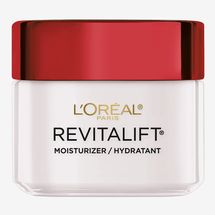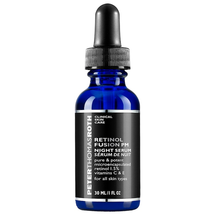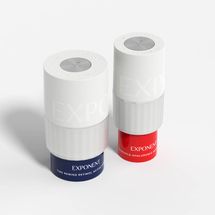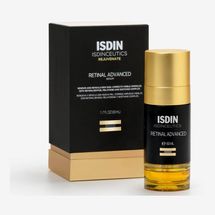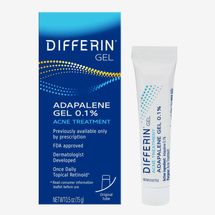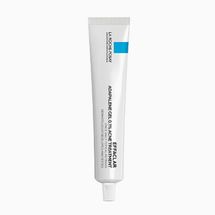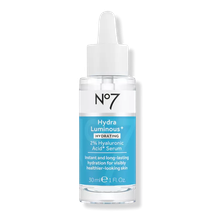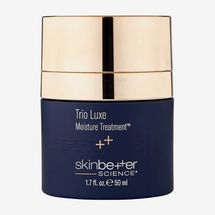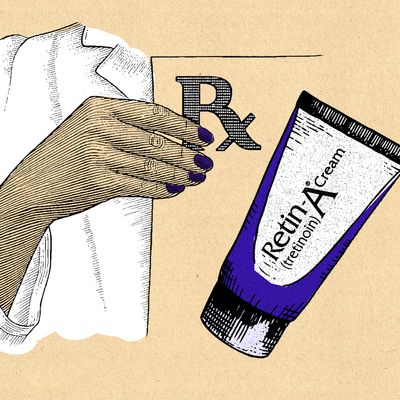
Just as a golden retriever is one type of dog, retinol is one type of retinoid. “Retinoid” is the umbrella term that describes all of the vitamin-A-derived ingredients we see in skin care, inclusive of both prescription and over-the-counter retinol products. Retinoids are used to treat a host of skin-care complaints, from fine lines and wrinkles to uneven skin tone and acne.
To take the analogy further, you could also say that golden retrievers are a medium-strength dog and retinol is a medium-strength retinoid. While “retinol” is often used as a catchall term to describe over-the-counter retinoid products, there are three different types of OTC retinoids, and retinol falls in the middle in terms of potency.
But before we dig deeper into your different retinoid options, here’s one more canine comparison: All puppies become dogs when they grow up, and all retinoids become retinoic acid. “Retinoic acid is the biologically active version of vitamin A, ready for your skin to use right away,” explains New York City dermatologist Shari Marchbein, M.D., FAAD. “All other topically applied retinoids need to undergo an enzymatic conversion, or two, or three, to ultimately become retinoic acid.” Retinoic-acid treatments, with one exception (more on that later), are available only by prescription.
“For all the good things that retinoic acid does, one of its drawbacks is that it can be somewhat drying and irritating,” says dermatologist David E. Bank, M.D., FAAD, director of the Center for Dermatology and Laser Surgery in Mt. Kisco, New York. “The more active the retinoid, the greater potential for irritation.” The good news, however, is that as your skin acclimates to a lower-potency retinoid, you can graduate to a stronger one. And for those who prefer to stick with a milder retinoid, if you use it long enough, you will still reap many of the benefits. (For more on all of retinol’s benefits, read our explainer on what retinol does for your skin.)
From least to most potent, these are the most common topical vitamin-A routes you can take:
Retinyl esters: If you want a beginner OTC retinoid
Retinyl palmitate, retinyl propionate, and retinyl acetate — sometimes referred to as retinyls or pro-retinols — are the least potent of the retinoids and the most tolerable. “For new retinoid users or people with sensitive skin, look for an OTC product with one of the retinyls as the active ingredient,” says Bank. If it makes your skin too dry or irritated, try using it every other night (a recommendation that applies to all retinoids). Retinyls are also the easiest retinoid to formulate with, so they can be inexpensive, like L’Oréal Paris Anti-Wrinkle + Firming Revitalift Moisturizer.
Retinol: If you want an intermediate OTC retinoid
The backstory: “Retinol was originally developed as an acne ingredient in the late ’70s/early ’80s, but at the time, it wasn’t possible to keep the formulations stable at room temperature,” explains Bank. “Pharmaceutical companies came up with retinoic acid, which is a more robust, stable molecule. But if they’d have been able to stabilize retinol, retinoic acid never would have been invented.” Retinol’s current, more stable form can be attributed to advances including microencapsulation, which protects the retinol molecule from light and oxygen while minimizing irritation (like in the Peter Thomas Roth Retinol PM Fusion Serum), as well as powdered formulas that you mix and activate yourself (like Exponent Time Rewind Retinol Power System).
Retinaldehyde: If you want an advanced intermediate OTC retinoid
Long considered too unstable to formulate with, retinaldehyde (or retinal) is finally getting its moment in the sun (without instantly breaking down). As the direct precursor to retinoic acid, retinaldehyde is more powerful than the other OTC retinoids but is considered to be no more irritating to the skin than retinol. Find it in ISDIN Retinal Advanced.
Adapalene: If you want an advanced OTC retinoid
Adapalene is a synthetic retinoid that closely mimics retinoic acid and doesn’t require any conversion steps to be used by your skin. What makes it unique is that it used to be by prescription only, but you can now find 0.1 percent adapalene gel-based products over the counter to treat acne, including Differin Gel and La Roche-Posay Effaclar. Stronger and cream-based formulations are available by prescription.
Tretinoin: If you want an intermediate prescription retinoid
This is pure retinoic acid, widely known as Retin-A but now available under many different brand names with different concentrations and formulations. It’s FDA approved for the treatment of acne and the only retinoid with an indication for photodamage, as well (though it’s widely accepted that all retinoids have wrinkle-improving powers). Study after study confirms tretinoin’s efficacy, but the drawback is that it can cause significant dryness, irritation, and peeling. Marchbein helps her patients minimize those side effects by shoring up the skin barrier with “‘the sandwich method,’ which makes any retinoid more tolerable without affecting efficacy.” Instead of applying the retinoid directly to your skin, Marchbein suggests first applying a layer of hyaluronic-acid serum, like No. 7 HydraLuminous+ Hydrating 2% Hyaluronic Acid Serum, to clean, dry skin. Then, start to build a sandwich: a layer of creamy moisturizer, then your retinoid, then another layer of moisturizer (Marchbein likes SkinBetterScience Trio Luxe Moisture Treatment).
Tazarotene: If you want an advanced prescription retinoid
“The most effective of all the pharmaceutical retinoids is tazarotene,” says Bank. “It’s at least as effective as tretinoin for its anti-sun-damage effects, and even more effective against acne: It’ll clear out blackheads on a 16-year-old boy’s nose like nobody’s business.” But alas, he says, it’s also the most irritating ingredient. Be sure to start slowly.
Our Experts
• Shari Marchbein, M.D., FAAD
• David E. Bank, M.D., FAAD
The Strategist is designed to surface the most useful, expert recommendations for things to buy across the vast e-commerce landscape. Some of our latest conquests include the best acne treatments, rolling luggage, pillows for side sleepers, natural anxiety remedies, and bath towels. We update links when possible, but note that deals can expire and all prices are subject to change.
